MercoPress. South Atlantic News Agency
Tag: Mauro Borges
-
Monday, September 29th 2014 - 08:47 UTC
Opening the economy “would be a disaster for Brazilian industry” states Rousseff minister

Anticipating what could be policy under a second government of President Dilma Rousseff, her Trade Minister Mauro Borges told Brazilian daily Folha do Sao Paulo that opening the country to more foreign trade would be a “disaster for Brazilian industry” and lead to the “mexicanization” of the economy, in reference to the light assembly factories known as “maquiladoras” that dominate Mexico’s non-oil exports.
-
Friday, August 8th 2014 - 07:59 UTC
Brazil insists in trade agreements and closer ties with Pacific Alliance, despite Mercosur
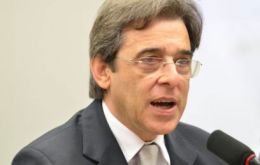
Brazil confirmed that it will try to bring forward to 2016 the free trade agreement with Chile, Peru and Colombia, scheduled for 2019 and underlined the need for Mercosur and the Pacific Alliance to converge as part of the region's productive integration process.
-
Wednesday, July 16th 2014 - 01:10 UTC
BRICS sign deal to create development bank and an emergency reserve fund
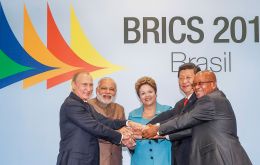
The leaders of the group of five BRICS emerging market countries signed on Tuesday a deal to create a new development bank and an emergency reserve fund, Brazil's President Dilma Rousseff announced at a summit of the group in the Brazilian city of Fortaleza.
-
Thursday, June 12th 2014 - 06:35 UTC
Argentina and Brazil extend auto industry accord until July 2015
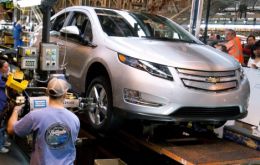
Argentina and Brazil finally on Wednesday in Buenos Aires a deal for automotive trade between the two nations, which will be valid until July 2015 and aims to revive the sector which has seen heavy falls in activity (and jobs) since the beginning of this year.
-
Friday, June 6th 2014 - 08:16 UTC
Argentina announces auto industry accord with Brazil; May sales collapsed 40%
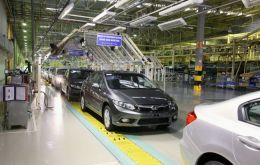
Argentina agreed to sign a one-year deal with Brazil to regulate vehicle trade between both countries, after a meeting held between Industry Minister Débora Giorgi and her Brazilian counterpart, Mauro Borges. The agreement will be signed on June 11 in Buenos Aires.
-
Friday, May 9th 2014 - 06:47 UTC
Brazil says Mercosur/EU to meet in Brussels at the end of May for trade talks

At the end of May Mercosur will be ready to exchange tariff-reduction proposals with the European Union, announced Brazilian Industry minister Mauro Borges who also anticipated the trade block would be holding a preparatory meeting next week in Caracas, Venezuela.
-
Friday, May 2nd 2014 - 09:03 UTC
Brazil confirms Mercosur/EU are ready to exchange proposals in a month's time
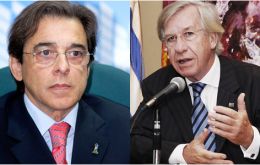
Brazil confirmed this week that for the end of May or early June, Mercosur will be presenting its joint tariff-reduction proposal to the European Union for the conclusion of an ambitious, but long delayed, cooperation and trade agreement.
-
Monday, March 31st 2014 - 19:28 UTC
Mercosur expects to exchange tariff-reduction proposals with EU next June
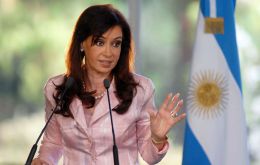
Mercosur expects to present a joint proposal regarding tariff reductions to the European Union during a meeting next June, according to Brazil's Minister of Development, Trade and Industry, Mauro Borges who apparently convinced a reluctant Argentina to join the group.
-
Monday, March 31st 2014 - 19:25 UTC
Brazil/Argentina agree on deal to promote bilateral trade by guaranteeing 'dollar liquidity'
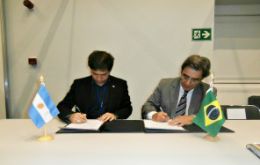
Brazil and Argentina signed a deal over the weekend that seeks to guarantee importers will have enough U.S. dollars to pay for exports, a move to increase trade between both nations that has been hit hard by a sharp depreciation of the Argentine peso.
-
Saturday, March 22nd 2014 - 07:31 UTC
Mercosur and EU in another effort to advance in the long delayed trade agreement
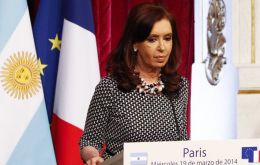
Mercosur and European Union chief negotiators met on Friday in Brussels to define if conditions are ready for the exchange of tariffs reductions proposals with the purpose of reaching an ambitious trade agreement which was started back in 1999 and has yet to mature.
